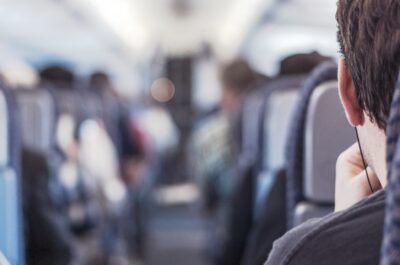Consumer leaders, in a formal letter to airline CEOs, are calling on the 12 major US airline CEOs to slash airfares and do it now.
Prices are plummeting at gas pumps every day, yet airfares have remained steady or even increased over the past six months. As a result, consumer leaders, in a formal letter to airline CEOs, are calling on the 12 major US airline CEOs to slash airfares and do it now.
“We have seen six months of steadily dropping gas costs,” says Paul Hudson, president of FlyersRights.com, a 50,000-member airline passenger organization. “By any measure, the money saved by the airlines should be reflected in lower airfares.”
Airlines are the ones who clearly established the link between fuel and airfares. For the past half-a-decade while fuel costs were rising, airlines were increasing airfares and regularly releasing story after story about the dire need for fuel surcharges, baggage fees and other ancillary fees.
“Because of the big airline mergers, competition has been squeezed out of the system,” notes Charlie Leocha, chairman of Travelers United (formerly Consumer Travel Alliance) who led consumer efforts against the American Airlines/US Air merger. “With only three network carriers, airlines now have the luxury of ignoring the market and maintaining high prices and low capacity.”
“Our organizations are making it clear to Congress and the Department of Justice that the market is not working,” says Hudson. “Consumers should be hearing airlines crow about how airfares are going down and the number of flights increasing thanks to the low cost of oil. Instead we hear deafening silence.”
“Common sense says prices should drop when the biggest cost factor in flying nosedives,” adds Leocha. “This isn’t rocket science. Though economists can make lots of excuses, if there were more competition, consumers would be seeing lower costs to fly.”
“This is a clear consequence of near monopoly in the airline industry,” explains Hudson. “If the airline CEOs don’t take action shortly, Congress, the Department of Transportation and/or the Department of Justice should.”
Instead of a reduction in airfares, airline consumers have been met with more baggage fees, seat-reservation fees, early-boarding fees, unconscionable cancellation charges, unjustified change fees, speak-to-a-human-being fees as well as near inhumane conditions in the coach cabin as airlines squeeze seats closer together to squeeze more profit out of flights,” says Leocha. “Enough is enough, passengers want to see the fuel cost saving being passed along to us.”
Here is the letter that was sent to the airline CEOs from Travelers United and Flyers Rights last week:
Dear Airline CEO:
We are writing to ask why you have not lowered your airfares in light of the 50%
reduction in jet fuel prices since June, 2014.
When prices increased after 2009, airlines were quick to raise prices or add fuel surcharges, noting that fuel was the No. 1 airline expense. But now that fuel prices have dramatically declined, airlines are not reducing prices but instead increasing them and reducing flights.
Airlines have also benefited greatly from debt and union contract relief, lower interest rates outsourcing and computerization of distribution channels, antitrust exemptions for airline alliances, and protection against foreign competition. But these savings are not being passed on to consumers to any degree.
Gasoline pump prices have declined so much that many Americans will reconsider driving instead of flying. As you know, corporate jets companies have effectively reduced pricing and increased their convenience. They have been growing rapidly, taking many first class and business class passengers away from airlines.
The major argument for airline deregulation was that competition would lower prices and provide more flight convenience. Instead we are seeing extremely high airline profits coupled with cartel-like behavior as well as poor reliability and increased travel times.
Concern is growing that that airline price increases are due to airline mergers, price coordination or collusion, and/or antitrust exemptions. This is leading to calls for government investigations and even re-regulation of air fares. Some are even calling airlines the new OPEC, based on the post merger practice of reducing flights and increasing prices in the face of growing demand in order to gouge consumers.
We therefore urge you to immediately order air fare reductions. This would set an example of responsible corporate behavior and show that price competition in the airline industry is not dead.
Flyersrights.org is the largest nonprofit airline passenger organization with over 50,000 members. It was the principal advocate for the 2009 Three Hour Rule ending tarmac confinements, for truth in scheduling regulations by the DOT, and for 2012 airline passenger rights legislation.
Charles Leocha, Chairman of Travelers United, is a member of the DOT Advisory Committee for Aviation Consumer Protections and has testified before both houses of Congress about aviation consolidation, price transparency and security. His organization advocates for the entire spectrum of travelers.
Paul Hudson, a leading advocate for airline passenger rights and interests for over 20 years, represents the public on the air safety regulation matters before the FAA, and has testified many times before Congress on aviation consumer, security and safety issues.
Sincerely.
Theodore is the Co-Founder and Managing Editor of TravelDailyNews Media Network; his responsibilities include business development and planning for TravelDailyNews long-term opportunities.
































































































































































































